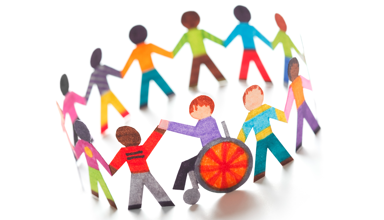In 2018, the Children, Young People and Education (CYPE) Committee said a ‘step change’ was needed in emotional and mental health support for children and young people in Wales:
“We state that the urgent challenge now lies at the “front end” of the care pathway – emotional well-being, resilience and early intervention – and that addressing this should be a stated national priority for the Welsh Government. Failure to deliver at this end of the pathway will lead to demand for specialist services outstripping supply, threatening their sustainability and effectiveness.”
The Committee’s follow up report – Mind over matter: Two years on (October 2020) says that in the face of the coronavirus pandemic - and its impact on children and young people’s wellbeing - delivery of the Committee’s 2018 recommendations is more important than ever.
How is the pandemic affecting young people’s mental health?
During the pandemic, young people have reported a range of issues including increased anxiety, loneliness and isolation, loss of support networks, and more limited access to mental health and other services they usually rely on. A Mind Cymru survey found that three quarters of young people said their mental health was worse in the early months of the pandemic. A third of young people who tried to access mental health support were unable to do so.
Modelling by the Centre for Mental Health (for England) estimates that 1.5 million children and young people will need new or additional mental health support due to the pandemic (this represents 15% of children aged 5-19 in England). CYPE Committee’s interim report (July 2020) on the impact of the pandemic on children and young people cautions that there is an important balance to be struck between recognising and supporting mental health problems, and not ‘medicalising’ natural responses to a frightening situation.
Longer term impact
It is however, now widely recognised that children and young people are disproportionately affected by the social and economic consequences of the pandemic. There is significant concern about the potential long term impact on young people’s mental health and wellbeing. The disruption to their education, employment and training opportunities is a key contributing factor here.
According to research by the Mental Health Foundation and Swansea University, nearly 7 in 10 British teenagers fear the pandemic will make the future worse for people their age. The Prince’s Trust highlights the link between poor mental health and not being in employment, education or training (NEET). It fears that, without mitigating action, a ‘lost generation’ of young people are facing long-term unemployment and lasting damage to their mental wellbeing.
In recent evidence, Professor Ann John (Swansea University) told the Health, Social Care and Sport (HSCS) Committee:
“what we want to avoid is what we call a cohort effect, where there's a particular insult dealt to a generation and those vulnerabilities follow them through in the long term. So, it really is about leveraging protections and services and access to care.”
Role of schools
In 2018, Mind over matter identified the key role schools play in building an emotionally-resilient population of young people. It called for a whole-school approach to reducing stigma and promoting good mental health. It also described the planned reform of the curriculum in Wales as a ‘once-in-a-generation opportunity’ to embed wellbeing into children’s lives.
The Curriculum and Assessment (Wales) Bill was introduced in July 2020. There’s been considerable discussion among stakeholders about whether the legislation makes explicit enough provision about mental health. CYPE Committee’s stage 1 report (4 December 2020) recommends that the Bill be amended to include specific reference to mental health and wellbeing on the face of the legislation.
“Valuing mental health equally with physical health is vital, especially for our children and young people. As a society, we still have a significant distance to travel before mental health has parity of esteem. While we do not doubt that this Bill aims to address these issues, we believe that a “belts and braces” approach is needed, much like the approach adopted for RSE [Relationships and Sexuality Education]. We need to make sure that the importance of mental health and well-being in our curriculum is plain for all to see now and in the future.”
Whole-system approach
Schools however, are only one element of the ‘whole-system’ approach called for by the Committee. Its Two years on report says that continued commitment and leadership from Welsh Government and sector leads will be essential to drive the system-wide, joint working needed:
“while we are reassured that progress in education is visible and can be evidenced, we are far less confident that the pace of change in health and local government (including social services) is sufficient.”
Responding to this report, the Welsh Government acknowledges the Committee’s concerns about progress in the areas of health and social services. It has agreed to expand the scope of the existing ministerial task and finish group on the whole-school approach to encompass the ‘whole system’, enabling it to provide leadership across all relevant sectors.
Access to mental health services
Mind over matter: Two years on highlights the Committee’s concerns that too many children and young people with mental health needs are still facing difficulties accessing appropriate, timely care. The report makes specific recommendations in relation to:
- crisis and out of hours support;
- inpatient services;
- psychological therapies;
- the transition from child and adolescent mental health services into adult services, and;
- support for looked after and adopted children.
While mental health services have been categorised as essential services since the start of the pandemic, both CYPE and HSCS Committees have heard consistent evidence from third sector services and professionals about people struggling to access support. This appears to be the case across the spectrum of need - from early intervention/primary mental health support services through to more specialist services and crisis care.
Missing middle
One of the key areas of concern for the CYPE Committee is that there is still a big gap in provision for what it calls the ‘missing middle’. This term refers to the significant numbers of children and young people who need mental health support, but who may not be unwell enough to need – or meet criteria for - help from specialist services.
The Welsh Government’s response to the Committee’s report highlights the work of the refocused Together for Children and Young People (T4CYP) programme. T4CYP is an NHS-led programme to improve the emotional and mental health support available to children and young people in Wales. One of its three workstreams – ‘Early help and enhanced support’ (EHES) aims to address the needs of the missing middle. The programme’s other key areas of focus are neurodevelopmental services, and regional partnership boards.
T4CYP’s own response to the Committee’s report said it is aiming to finalise the EHES Framework, and undertake preparatory work for its implementation, by March 2021.
Next steps and further information
The Committee recognises the progress that’s been made to date, particularly in respect of schools. And while improvements are now being seen at the ‘front end’ of the care pathway, concerns remain about a lack of provision for children and young people who need more specialist support, those with complex needs, and those who need help in a crisis. The Committee says that ‘significant and urgent’ work remains to be done to ensure that the foundations of the whole-system approach called for are in place by the end of this Senedd.
The Committee’s Mind over matter: Two years on report will be debated in Plenary on 16 December 2020. You can watch this on Senedd.tv here.
Also to note:
- The Welsh Government revised its Together for mental health delivery plan (October 2020) to include some updated actions in response to the impact of the pandemic on mental health and wellbeing..
- The Welsh Youth Parliament’s Emotional and Mental Health Support Committee launched its report - Let’s Talk About Mental Health in October 2020.
- The Health, Social Care and Sport Committee is expected to publish its report on the impact of the coronavirus pandemic on mental health in Wales in December 2020.
- Senedd Research has published a series of blogs on coronavirus and issues affecting children and young people, including articles on youth unemployment, children’s rights, equality issues, and the Children’s Commissioner’s latest annual report.
Article by Philippa Watkins, Senedd Research, Welsh Parliament






